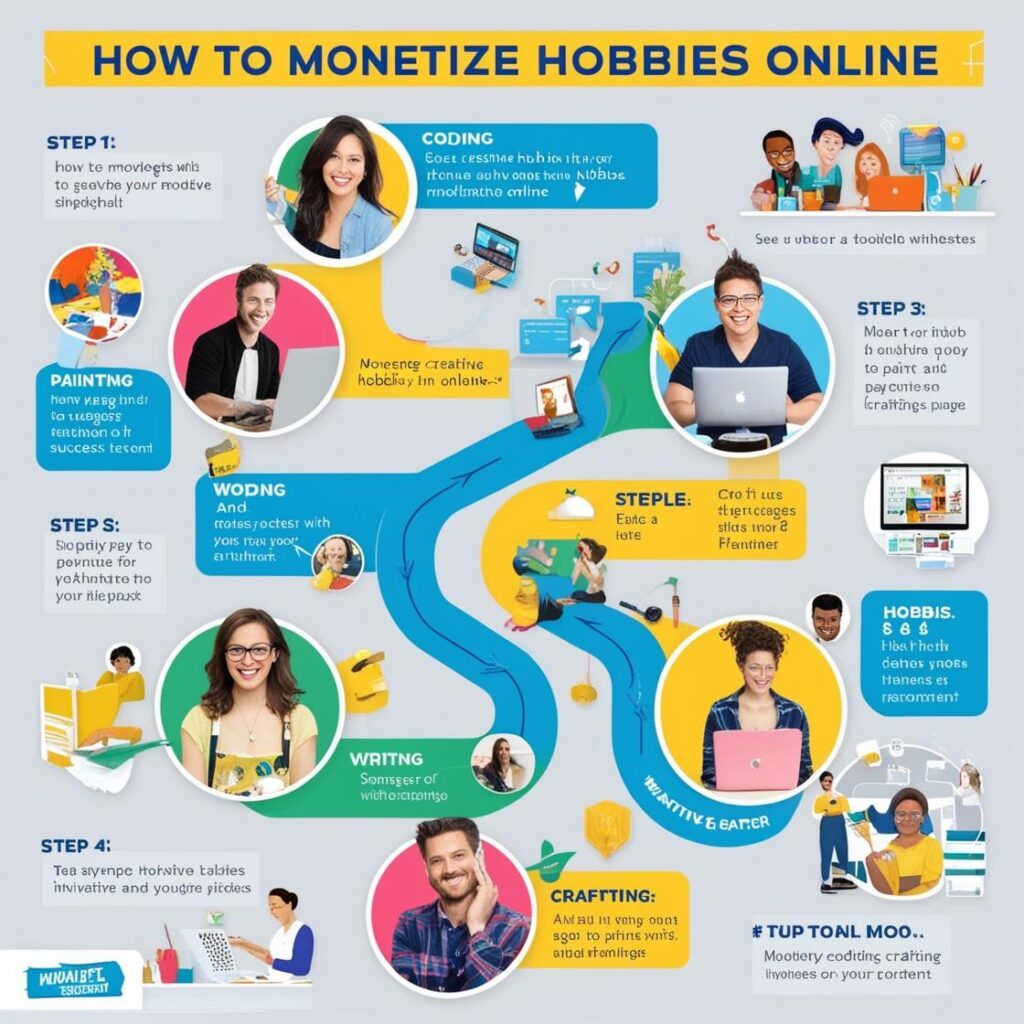Turning your hobbies into a source of income is an exciting adventure many people are embracing today. Imagine earning money while doing something you genuinely enjoy—this is the essence of monetizing hobbies. The benefits are plentiful: you can achieve financial freedom, experience personal fulfillment, and find a more satisfying work-life balance. Thanks to the internet, there are countless opportunities to explore every passion and transform it into a viable income stream.
2. Identify Your Monetizable Hobby
Assess Your Skills and Interests
Start by listing hobbies you’re passionate about. Ask yourself what activities you do for fun. Here are a few ideas:
- Painting
- Writing
- Gardening
- Baking
- Crafting
- Playing video games
Once you have your list, think about hobbies that offer unique or marketable skills. For example, are you great at creating custom invites, or do you brew your own beer? These talents can easily catch the attention of others looking to hire or purchase.
Evaluate Demand
Next, you’ll want to ascertain if there’s an audience for your hobby. Research online platforms where similar interests are showcased. Tools like Google Trends can be very helpful for gauging current interest. Social media platforms, such as Instagram or Pinterest, can also provide insights into what people are excited about. Look for groups or hashtags related to your hobby to understand how engaged the community is.
3. Choose the Right Online Platform
E-commerce
If your hobby involves creating tangible products, consider selling on platforms like Etsy, Amazon, or Gumroad. These marketplaces allow you to reach a vast audience quickly.
Social Media and Content Platforms
For hobbies rooted in content creation, think about YouTube, Instagram, TikTok, or starting a blog. You can share your expertise and earn money through ads, sponsorships, or affiliate marketing as your audience grows.
Freelance and Service-Oriented Platforms
If your hobby is a skill people might hire for, such as graphic design, writing, or social media management, platforms like Fiverr, Upwork, or Patreon enable you to offer your services to a wider audience.
4. Develop Your Brand
Create a Strong Online Presence
While starting online can seem daunting, a strong online presence can help you stand out. Consider designing a professional logo, setting up a dedicated website, or creating social media pages focused on your hobby. Make sure to post high-quality content regularly to engage your audience.
Engage with Your Audience
Don’t forget to interact with people interested in your hobby! Respond to comments, answer questions, and share your journey. Building a community around your passion not only boosts engagement but also helps establish your credibility in your niche.
5. Monetization Strategies
Selling Products
Depending on your hobby, you could sell:
- Physical goods: Think crafts, handmade jewelry, or baked treats.
- Digital downloads: Consider e-books, templates, or online courses related to your passion.
Affiliate Marketing
Explore affiliate marketing by partnering with brands that align with your niche. This way, you can earn commissions on sales generated through your recommendations.
Advertising and Sponsorships
If you’re building a content platform, consider working with brands for sponsored posts or ads. This can be a great way to monetize your large audience.
Memberships and Subscriptions
Offering exclusive content through platforms like Patreon or Substack can be a fantastic revenue stream. For example, you could provide subscribers with behind-the-scenes content, special tutorials, or access to a community forum.
6. Overcoming Challenges
Time Management
Balancing hobby monetization with a full-time job or other commitments can be tricky. Try setting a schedule that allocates specific times for your hobby-based business without overwhelming you.
Competition
With many people trying to monetize their hobbies, a unique angle can make all the difference. Focus on what sets you apart—maybe it’s your style, technique, or the particular niche you serve.
Building Credibility
Establish trust with potential customers by showcasing testimonials or sharing your own progress. Providing case studies or before-and-after results can really boost your authenticity.
7. Success Stories for Inspiration
Many individuals have successfully turned their hobbies into careers. For instance, a stay-at-home mom turned her love for baking into a thriving online bakery, gaining a large following on Instagram. A photographer transformed her hobby into a business by offering photography lessons and sharing her portfolio online. Look for stories that resonate with you—they can be a spark of motivation!
8. Practical Steps to Start
- Research: Outline your initial strategy by researching your niche and identifying your competition.
- Test the waters: Start small; perhaps create a social media page or a simple online shop. Minimal investment can lead to significant insights.
- Free tools: Utilize free tools for marketing and growth, such as Canva for graphics, Mailchimp for email marketing, and Google Analytics to track your website’s performance.
9. Conclusion
Transforming your hobbies into an income stream is absolutely achievable with dedication and the right approach. Every journey starts with a single step, so take the plunge today. Explore the possibilities that await you, and who knows? You might just turn your passion into something extraordinary!
